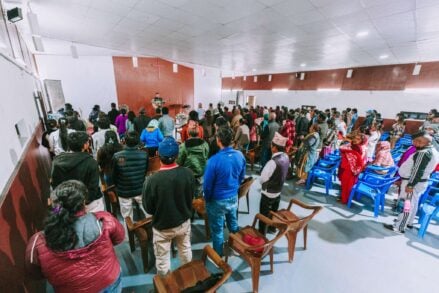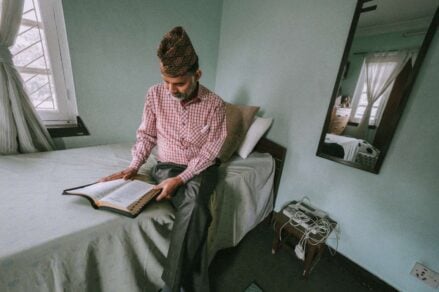5. What do you do when your citizenship is tied to another religion?
In countries like India and Turkey, religious identity is increasingly tied to national identity—meaning, to be a “real” Indian or a good Turk, you must be a Hindu or a Muslim, respectively. This is often implicitly—if not explicitly—encouraged by the ruling government.
Amidst a surge of Hindu nationalism, Indian Christians are constantly pressured by strident propaganda. The message “to be Indian, you must be Hindu” means mobs continue to attack and harass Christians, as well as Muslims. The belief that Christians are not truly Indian means widespread discrimination and persecution is often conducted with impunity. India also continues to block the flow of foreign funds to many Christian-run hospitals, schools and church organizations, all under the guise of protecting the Indian national identity.
In Turkey, the Turkish government has also assumed the role of nationalist protector of Islam. The Hagia Sophia was originally a cathedral and then a mosque, until modern Turkey decided it should be a museum. But in July 2020, the Turkish president persuaded a court to make it a mosque again, strengthening Turkish nationalism.
Near Turkey’s southeast border in January 2020, a Chaldean Christian couple was abducted from their isolated village, whose centuries-long Christian history had been destroyed by Turkish army attacks and Kurdish discrimination. The couple returned to their home a decade ago. Having resisted the authorities’ repeated intimidation to leave, they were the last Christians left. The wife’s body was found in March; the husband is still missing.
Turkish influence and nationalist aims extend beyond its borders, most notably in its backing of Azerbaijan in its conflict with Armenia. During the conflict, Armenians and Chaldean Christians in the Turkish capital, Ankara, were beaten, while others in Istanbul were threatened by right-wing mobs, showing how centuries-long, inter-religious animosity can be stirred up.
In other countries where persecution is high, religious identity is closely tied to national identity, and anyone who follows Jesus risks being seen—and persecuted—as a bad citizen.







